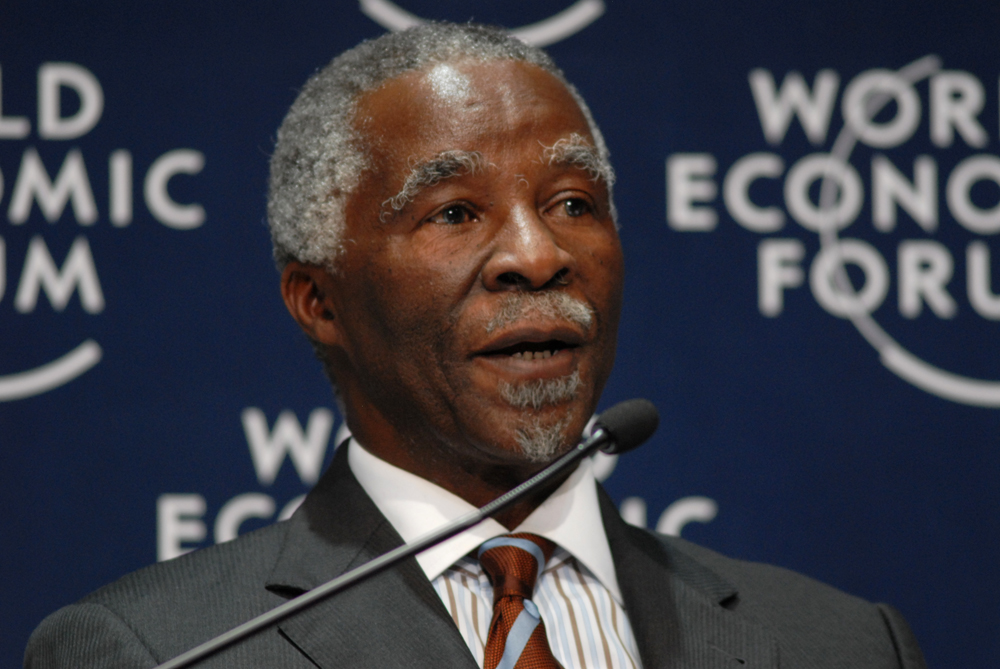Thabo Mbeki Unauthorised (2007)

In 2006, I made this half-hour film with Ben Cashdan and Redi Direko for SABC3 primetime.
The film was commissioned as part of an SABC series on controversial South African personalities, the format being we could not talk directly to the subjects but only to the people around them. William Gumede was one of the owners of our production company, Broad Daylight Films, and his book Thabo Mebeki and the Battle for the Soul of the ANC became one of the main sources for our research.
Early on, we ran into trouble. Mbeki had created such a climate of insecurity around him that no one would agree to speak to us. Not his family, not his friends, not his enemies. Eventually we managed to cobble together a few brave souls, mostly journalists, to speak about the most powerful man in South Africa. Using some brilliant archival material, we built our drama around the jostling and jockeying that took place during Mbeki’s Machiavellian rise during the early 90’s. We also told the story of how Mbeki wooed white business away from the Apartheid Government with the promise that they could keep their money under Black rule.
And that apparently was too much for primetime TV.
The night it was meant to be broadcast, the film was spiked, pulled from the control-room playback machine on orders, we soon discovered, from an SABC crony with close ties to the ruling ANC. The ensuing battle, both legal and in the media, lasted for 2 years and led to the Freedom of Expression Tour, in which we took our banned film to community venues across South Africa and led public discussions about the importance of freedom of expression. The film eventually did get broadcast on SABC3 in 2007, with very minor changes, but only after Mbeki’s dramatic fall from power. The experience offered a unique window into the machinations of political power and the media in that beautiful country.
It remains a lovely little film, one that got swept up in its own story, overstepping an important journalistic line, becoming a part of the history it intended to merely chronicle.
